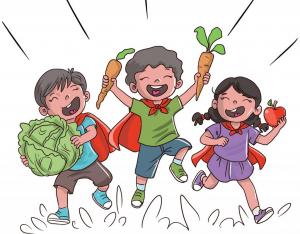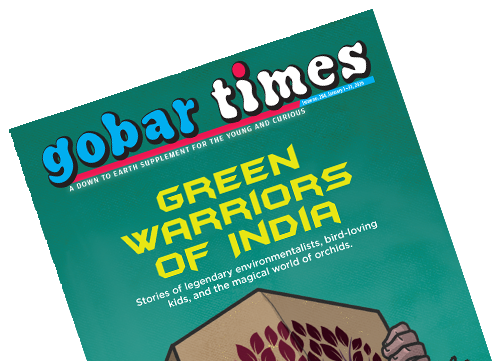
This melting reality isn’t about hot fries — it’s about a hotter planet. Recently, the US government rolled back an important rule that curbed greenhouse gas pollution. This rule helped control emissions from cars and industries. Without it, more heat-trapping gases could be released, making Earth warm even faster. Just like this melting “M,” our clean air and comfortable climate can also slip away if big industries pollute unchecked. The message: When protections for the planet disappear, everyone’s future is at risk.

Discover why nutrition is more than just ‘food’—it shapes children’s health, learning, and future

The love for junk food is widespread among the younger generation. But what's really going on behind the bag? Let's unwrap the truth about junk food and its impact on our health

How I found out that minerals from hard water might be sneaking into the food we eat!

Unwrapping the hidden cost: How junk food packaging chokes our streets, soils our Earth and demands urgent action

How a walk around a colony in South Delhi’s bustling life, gave a student a peek at how many of us make our food choices

In Jim Corbett, I learned that true “good food” is fresh, local, and nourishing—like the simple Kumaoni breakfast that gave strength, balance, and a taste of tradition

How an adolescent is spreading awareness regarding the excessive junk food consumption as it is fueling health issues and environmental pollution, prompting calls for awareness and action.

धरती का हर मुद्दा जलवायु परिवर्तन से जुड़ा ********************************** बॉन कान्फ्रेंस 2017 की बात है। एलायंस आॅफ स्मॉल आईलैंड स्टेट्स (एओसिस) से जुड़े एक देश के बड़े नेता फूट-फूटकर रो रहे थे। एओसिस मतलब छोटे समुद्र द्वीपीय देशों का समूह। आसानी से समझने के लिए मा…

Read stories from 'On a Good Food Hunt' and check out the comics on our website. Fill in the speech bubbles with your best lines. The wittiest, wisest words win a cool prize! So read up, scribble out, and let Babbi speak through you!

